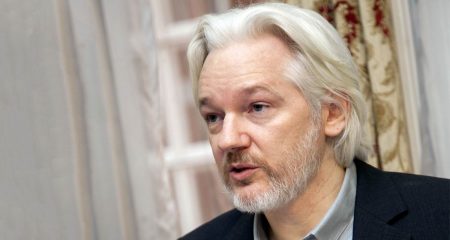
[By Candice Jones]
The mass release of thousands of confidential diplomatic cables by WikiLeaks has sparked huge debate around the world about whether the international whistle-blower site was right to do it.
The decision to publish the documents has been met by both criticism and praise. The US state-department has raged at the decision — unsurprisingly, given the embarrassing nature of some of the content.
Some of the information contained in these cables features commentary about former presidents Nelson Mandela and Thabo Mbeki.
The general consensus around the world is that the information is more embarrassing than dangerous. But the more I read about the leaks, the less I am inclined to agree with that sentiment.
As a journalist, I welcome the free flow of information. It’s the lifeblood of my trade and critical to the health of our democracy.
Having said that, some information has to be kept from the public eye.
WikiLeaks founder Julian Assange may have some understanding of global politics, but I doubt he has much idea of what impact his releasing these cables might have.
Take the example of cables about Mbeki. At least one cable questioned the integrity of Mbeki during his time as mediator in Zimbabwe.
Mbeki’s work in the distressed country led eventually to the uneasy coalition government of Zanu-PF and the Movement for Democratic Change (MDC).
However, the cable alleges Mbeki was biased towards Zanu-PF and its leader, Robert Mugabe. At face value, this may appear only embarrassing. But in the larger framework of Mbeki’s continuing efforts across the continent, it could prove problematic.
Since Mbeki was recalled as president, he’s been working across Africa, garnering respect among his peers as a mediator in many controversial political disputes.
He is currently working in the troubled Sudan, mediating a dispute between the oil-producing south and the north, which was flung into crisis earlier this year when its president, Omar al-Bashir, was charged by the International Criminal Court for crimes against humanity in war-torn Darfur.
After many months of hard work, Mbeki has earned the respect and trust of the southern Sudanese leader Salva Kiir.
This will be the most difficult of negotiations for the ex-president because Sudan’s borders, designated by colonial powers, are likely to be redrawn.
Negotiations in Sudan are highly charged and any question about Mbeki’s allegiances could have far-reaching consequences. If he is thought to prefer one side above another it could lead to civil war.
It’s hard to say exactly what damage the files released by Wikileaks will have on the negotiation in Sudan, if any. But you can bet this thought didn’t cross Assange’s mind before he published the cables.
Because Mbeki was often seen holding Mugabe’s hand in public does not necessarily mean he was biased against Tsvangirai. If Mbeki had spent more time with Tsvangirai, would people have accused him of bias towards the MDC?
So, although it may be important — essential, even — to root out corruption and bad behaviour in governments, perhaps there is an argument that some government communication needs to be kept from the public eye.
- Candice Jones is deputy editor of TechCentral
- Subscribe to our free daily newsletter
- Follow us on Twitter or on Facebook



